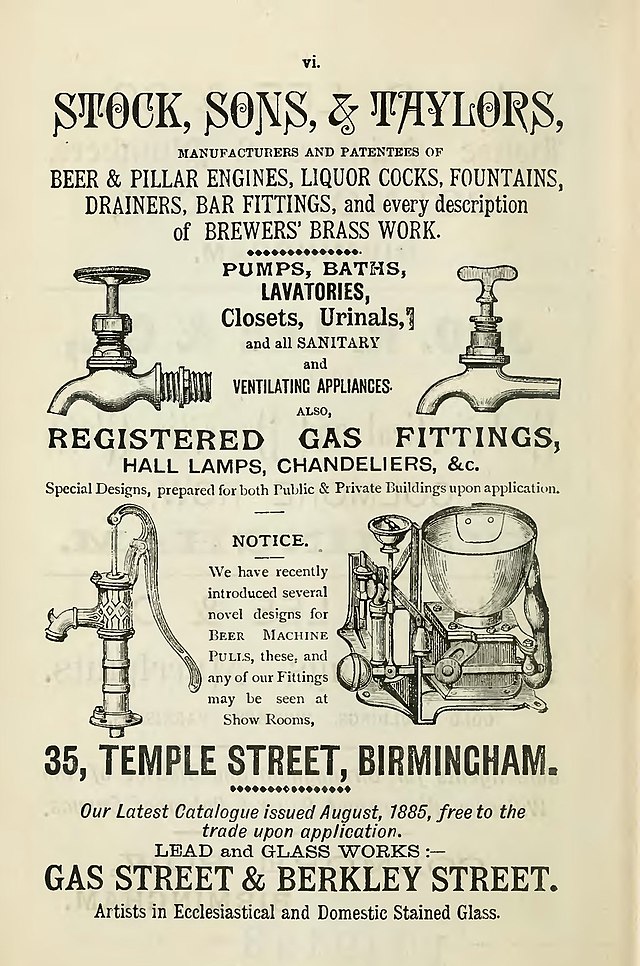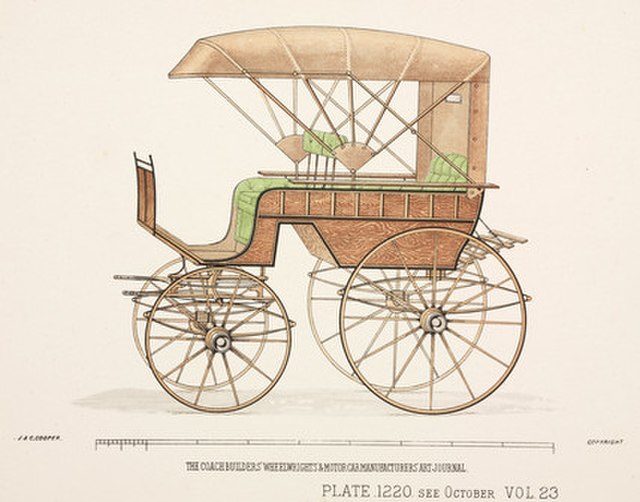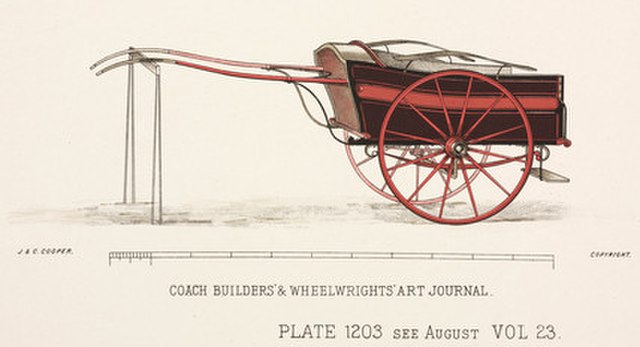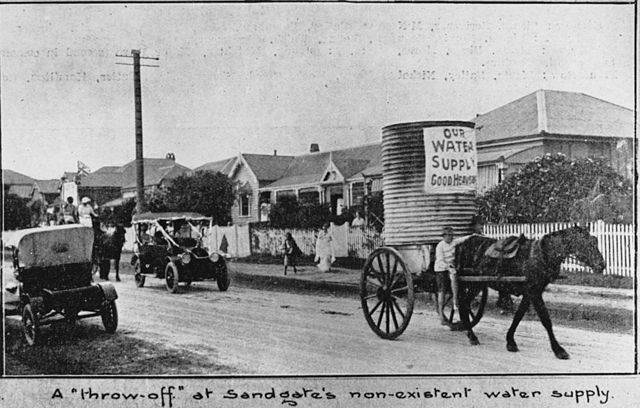During Henry VII’s reign, alehouses, inns and taverns began to be known under the collective name of public houses and by 1552 a licence was needed to run one. The first time the word ‘pub’ was used in a dictionary was 1859 so it’s a fair assumption that the term was pretty common by that time.
In the 18th C gin was produced in massive quantities to replace French Brandy which had become unpopular because it was expensive and, well, French. Importing of rum from the West Indies also rose dramatically. In the late 1820s the Government was keen to promote home grown production and to reduce the over consumption of spirits, so they introduced the Beer Act in 1830. This completely abolished tax on beer immediately reducing the price by about 25% and it also allowed anyone to buy a licence to sell and serve beer in their own front room. Rather than go to the magistrates for a licence all you had to do was pay the local Excise man – you could have your very own beerhouse.
Beerhouses could be open from 4am to 10pm and the other pubs could be open even longer. A lot of shop owners took advantage of this to also sell beer – like Abraham Wood whose house became the Swan.
At the time the most popular ale/beers were Porter (made from malted barley) and Stout (made from roasted but unmalted barley). The introduction of beerhouses led to a surge in demand for mild beer and Porter went into a long slow decline. The big brewers like Whitbread who at the time only brewed Porter had to respond and they overwhelmingly turned to Mild Beer production. By the end of the 19th C mild accounted for over 75% of beer consumption in England.
Some pubs brewed their own beer e.g., the Red Lion and the Crown but there were also a number of breweries in the village at different times. Armitage Brewery, run by Messrs Yeld and Dawes, had premises at the top of Old Road near the toll gate and the Trent Brewery was run by Richard Painter. There were also plenty of malthouses in the village – down Pike Lane, for instance, or right where the office entrance is for Ideal Standard now.
Not everyone prospered of course. George Harvey in Handsacre had done very well as a wine and spirit merchant but the change in drinking habits caught him out and in 1839 he was declared bankrupt.
During the 19th C most of the people who ran the pubs had a second job. William Weate who ran the Chetwynd Arms is variously recorded as a netmaker and beerhouse keeper or a shoemaker and publican whilst Abraham Wood who ran the Swan is shown as a grocer and beer retailer.
Ale and beer formed a part of the staple British diet – the brewing process made ale or beer a much safer option that drinking water at that time. And they also contained calories which made up for a lack of food. Pubs in Britain became a unique social centre and seem to have been a focus of village life. The only remaining ‘beerhouse’ in the village now is the Swan but in the middle of the 19th C there were plenty of them. The disappeared pubs/beerhouses include
- The Boat – by the canal at the bottom of what used to be Boathouse Lane
- The Magpie – near the canal bridge on Old Road
- The Barley Mow – this became Armitage Club & Institute
- The Bell – down Pike Lane on the opposite side to The Mount
- Chetwynd Arms – down New Road
- New Inn – in between the Red Lion (now The Old Peculiar) and the Crown
Increasing competition from beerhouses led to changes in the existing pubs. When Gin Shops had appeared they had pioneered a new concept – the bar counter. This was now adopted by pubs and made serving customers much easier and quicker particularly if you had a ‘beer engine’ installed on it to draw beer up from the cellar – the hand pump was invented in 1787. They also increased the range that they offered and improved their facilities, introducing fancy stuff like mirrors.

The introduction of beerhouses though led to more disorder and drunkenness and the first reaction from the Government was to triple the cost of the licence. The Government also made it more difficult to obtain a new pub licence by making the licence renewable only by magistrates. This eventually meant that new licences were simply not given out and, later in the century, the big breweries – if they wanted somewhere to sell their beer – had little option but to buy pubs and hence the licence – creating a tied-pub. The tied pub at its peak controlled more than 80% of the pubs in England. The 1830 Beer Act was followed by many amendments – the 1834 Beer Act, the 1840 Beer Act and so on. Rising concern about big increases in public drunkenness led the Government to consider even more legislation. This is nothing new – as far back as about 970 AD the Anglo Saxon King Edgar was said to be responsible for introducing a drinking measure known as ‘the peg’ as a means of controlling the amount of alcohol an individual could consume, hence the expression “to take someone down a peg or two”. In 1872 the Government introduced the Licensing Act 1872 which, amongst other things, introduced a closing time which did not go down well with the working classes. It also created a tier of offences i.e., first time being drunk in public had a maximum fine of ten shillings whilst the second time in 12 months had a maximum fine of twenty shillings and a third within 12 months had a maximum fine of forty shillings.
You could be charged with
- being drunk in a public place
- being drunk and disorderly in a public place
- being drunk and riotous in a public place
- refusing to quit a licensed premises
- being drunk in charge of a horse, or cattle, or a carriage
- as a landlord/landlady permitting drunkenness on licenses premises
- as a landlord/lady being drunk yourself on licenses premises
Money was not plentiful and there are countless stories, well into the 20th C, of workers having a pint or two ‘on the slate’ or ‘on the strap’ during the week and when pay day came along all the money went to pay off their debt at the pub. Men from the village walked to work and if that meant walking to Brereton or further to the pit then it also meant that you walked past a lot of pubs on the way back. One Handsacre miner used to say he
Wet his whistle at the Talbot Cut down the Ash Tree, Had a feed of Plum Pudding, Shot the Swan, Faced the roaring Lion And then wore the Crown!
Here’s just a small sample from newspaper clippings and other sources about drinking in the village.
In October 1914, Emma Bentley was in charge of the Ash Tree when Phoebe Whitehouse of Hood Lane and Elizabeth Pooley, also from Armitage, came in. Phoebe ordered a bottle of stout and went into the kitchen. She refused to leave when ordered to do so and, according to a Rugeley postman, swore at the landlady. She was summoned for refusing to quit and was fined 10 shillings plus costs or ten days hard labour.
__________
In 1851 Alexander Wood ran a pub in Upper Brook St., Rugeley where Elizabeth Lowe was his barmaid. They married in 1853 and moved to Brick Kiln Farm in Armitage where he farmed 10 acres of land. He appears quite a few times in the court records for drunkenness and assault whilst drunk against their lodger, Charles Wylde, amongst others. Elizabeth also appears in the newspaper in June 1864 – she was found lying helplessly drunk in the street in Handsacre by PC Billett. Alexander was sent for, and he appeared along with their lodger and carried her home. She was summoned to appear at Rugeley Court on 16th June for being drunk in a public place but failed to appear – in her absence she was fined 5 shillings with 9 shillings 6 pence costs. If she failed to pay her penalty would be six hours in the stocks! Not surprisingly her fine and costs were paid.
This is the only instance I have found to date where the alternative to paying a fine was the stocks – it was usually so many days or weeks imprisonment. The stocks in Rugeley were under one of the three arches of the Town Hall which was demolished in about 1879. These wooden stocks would probably have just been fitted with holes for the miscreant’s ankles. Stocks in towns were made compulsory in 1351 AD when the King passed the Statute of Labourers Act, and the stocks were originally for any labourers who had the temerity to demand higher wages. (After the Black Death labour was scarce and labourers wanted more pay). As time went on the stocks began to be used for minor misdemeanours and were still in use in England in the 1870s.
__________
What’s the difference between drunk and disorderly and drunk and riotous? Well, apparently, disorderly behaviour is acting in a way that disturbs the peace or interferes with the comfort of people who may be nearby and you can be charged if the police think your behaviour is intended to disturb even if no one is actually disturbed by it. So, Peter Sefton in Handsacre, on Sunday 22nd October 1893, may simply have been too loud or boisterous. Regardless, he was fined 2/6 with 5/- costs for being drunk and disorderly. (Okay – two shillings and six pence with five shillings costs).
__________
Being drunk and riotous though takes the behaviour to another level and frightens an actual member of the public. And makes them fear a breach of the peace is likely to occur. Or the police think your disorderly behaviour is severe. Maybe all it takes is for a number of people to get drunk and noisy with plenty of ‘verbals’. Handsacre was again the venue but this time there were three people charged – Charles Greatrix, John Harvey and Isaac Conway – and for drunk and riotous behaviour. They didn’t turn up for their court case on Tuesday 27th September 1864 and they were fined 20 shillings each with 9s 6d costs. This was eight times more than Sefton’s fine above – it may reflect the difference in offence, or the people involved or indicate that thirty years later Sefton’s behaviour was viewed by society and the magistrates in a different manner.
_________
You didn’t have to have been drinking in a pub to get in trouble with the law – drinking at home might do it as well. George Morecroft lived at the brickyard in Handsacre with his wife, Charlotte, and four children. On one side of them was his brother, Samuel, his wife Ann, and their children, and on the other side was Reuben Dawson, Maria and their family. If you wanted a companiable drink like George did on one Monday evening after a hard day’s graft at the brickyard you might have expected him to drink with his brother. Unfortunately for George his brother was not only a Methodist preacher in his spare time but also a complete abstainer. So, on this evening he drank with the Dawsons.
All concerned though went too far, particularly the Dawsons, and before the evening was out, they had started to quarrel and Reuben ended up with a cut to his forehead. How it happened and who caused it was never divulged but George went down the road to fetch the police. When the police arrived, they arrested all four of them for being drunk in a public place. Reuben, who when the police turned up was being held up by his wife on one side and one of his sons on the other side, objected strenuously stating that they were on private land and not on a public footpath. Regardless of his objections both couples were summonsed for being drunk in a public place and appeared at separate cases on 29th July 1881 before JPs at Rugeley. Both couples were found guilty and fined 5 shillings each plus costs. The small fine annoyed the prosecutor who afterward stated that ‘if the Bench had done justice between the police and the defendants the fine would have been much heavier’.
_________

On Tuesday morning, 31st January 1905, Frank Butler and Jack Cheese left Manor Farm in Wall where they worked for Capt. Harrison J.P. and set off for Rugeley. Butler was driving a wagonette which Cheese later was going to take to Capt. Harrison’s house – Aldershawe House in between Wall and Lichfield. Cheese was driving a horse-drawn float – this was a 2 wheeled cart with a dropped axle to give a low load bed. The axle passed beneath the load bed of the cart but was cranked up at each side. The bed was low both for stability and for ease of loading with heavy items which was good for them because they were on their way to pick up a pig. The box body at the back was open with just a chain with which to restrain the load – maybe not so good. There wasn’t a driving seat but a step by the side of the load where the driver stood.


After picking up the pig they found themselves outside the Malt Shovel in Elsmore Lane in Rugeley at about noon, so they popped in. They shared some beer with three others, (they later claimed only 5 or 6 pints between the five of them over a whole hour), and set off on the road back. Opting for the flatter route home they followed the narrow road to Armitage and spied Arthur Brammer outside the Plum Pudding so went in with him for lunch – bread, cheese and pickles – and a pint each. Brammer joined Butler in the wagonette for a lift home but when they got to the Swan Beerhouse they all decided to go in. (The road at that time was narrow and ran close by the Swan – you can still see that road now but the almshouses, Londis and Itonia Terrace had yet to be built and all were open fields. The road was made of crushed stone but had no tar on it – tarmac had been invented about three years earlier, but it would be many years before the roads through the village were topped with tarmac). Between them and a few other customers they had another 5 pints (in about a quarter of an hour) and left the Swan and Brammer at about quarter past three. (Quite probably the beer was poured from a pitcher so quite how much each of them had would be difficult to judge).
By this time Cheese was drunk. An Armitage roadman, John Poole, saw him driving down the wide New Road and he was whipping the horse. Cheese then climbed into the float and went tumbling about and for some reason he started whipping the pig. He was still whipping both animals when he went past Joseph Bond in Handsacre who thought he was extremely drunk. His driving got more erratic and nearing Elmhurst he was all over the road – so much so in fact that he forced William Sutton of Mavesyn Ridware, who was driving a cart towards Handsacre, off the road onto the grass verge. Whether the pig was thrown over the side because of this or he decided to head for freedom away from the whipping isn’t known but by the time Cheese got to Elmhurst the pig was gone. Butler was in front in the wagonette and oblivious to all this. When he turned to check on Cheese at Elmhurst, he noticed that the pig was missing, and Cheese was clearly drunk. They both went back along their route until they found the pig and managed to load it back on the float and Cheese drove home.
Poole and Bond weren’t the only people to have seen all this and before long the Law was involved. The first response was at the annual licensing session at the Rugeley Petty Sessions on Monday 13th February. The police report showed a 50% increase in proceedings for drunkenness in the area. The Chairman, Sir Charles Forster, Bart., declared that all the licenses would be renewed except for four and one of the four was the licence for James Ison, landlord of the Swan. Forster stated that there was a case coming up later that day for permitting drunkenness at the Swan and the renewal of the licence would be put off until after that case had been heard.
During the case against Ison for permitting drunkenness on licenses premises, Butler stated that he had had the same amount to drink as Cheese and that Cheese had seemed OK on leaving the Swan. This was corroborated by Brammer who stated that Cheese had been very quiet and was neither drunk nor sober. The landlady of the Plum Pudding, Mrs. Winterton, said that she supplied the men with beer at the Plum Pudding and they were all sober. At this stage of the case the magistrates were of the opinion that there was no case to answer, and there was no evidence to show that Ison would have been justified in refusing to supply Cheese with drink. Two weeks later at the reconvened licensing session James Ison’s licence was accordingly renewed.
Two days after, on Wednesday 15th February, John Cheese was charged with being drunk while in charge of a horse and float at Elmhurst and also with cruelty to a horse at Armitage, both offences on 31st January. Cheese pleaded guilty to both charges. The witnesses were John Poole of Armitage, Joseph Bond of Handsacre and William Sutton of Mavesyn Ridware. For the drunkenness he was fined 21 shillings, including costs, whilst for the cruelty he was fined 10 shillings with 13 shillings costs, or 21 days’ hard labour.
_________
On Saturday 27th August 1887 Sgt. Hempton and PC Handy called in to the Plum Pudding to check on the customers and the pub and found the landlord, William Watkiss, shouting at his wife and calling her ‘ugly names’. He was so drunk that he could hardly stand up. Nearly a fortnight later Watkiss was brought before the magistrates for being drunk as the landlord of a pub – on the same day that the annual licences came up for renewal. A decision on the licence for the Plum Pudding was adjourned whilst later in the day Watkiss, who denied all charges, was found guilty and fined 10 shillings plus costs.
On 1st October the annual licensing session was reconvened to consider the licence renewal for the Plum Pudding. A Mr. Russell appeared on behalf of the Trent Valley Brewery Company and stated that the licence, if granted to Mr. Watkiss, would be transferred to their tenant, Mr. Herbert Hawkins who was a butcher from Rugeley, who was going to occupy the premises. The Plum Pudding would therefore be one of the forty seven tied pubs that the brewery operated. He also presented what he called a memorial signed by a number of persons in favour of the renewal – nowadays we would think of it as a petition signed by the regulars. After a short deliberation the licence was granted.

Love it another notorious Whitehouse
Great grandma pheobe god bless her
My aunt said she delivered coal and the horse used to stop at all the pubs
Well trained 😂
Excellent as always, Richard. Very informative about the laws and history of public houses, and I bet there are a few who wished that some of them still applied in town centres on a Saturday night!
Thanks Hilary. There’s always plenty of info out there – just need to look for it and then make something of it.
Some things never change!
Brilliant piece of research and so interesting to read. Thank you Richard.
It was interesting to read some of the names recorded who had also signed the pledge.
Made me smile So pleased to have found armitagops.com I read Article (Never Gooin to a wedding) an interview with George Hacket withan account of his father having been frightened to pass through Handsacre due to fighters and poacher Thankyou